- March 27, 2024
Do Cats Masturbate? Vet-Verified Facts & FAQ
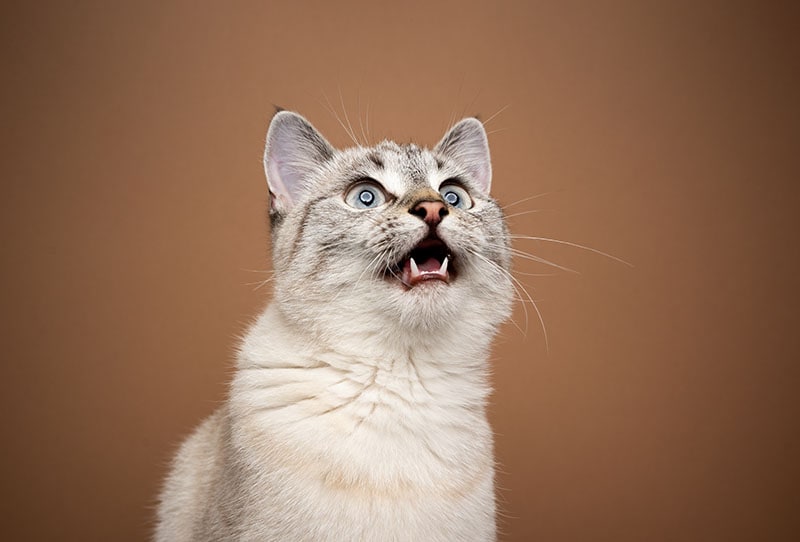
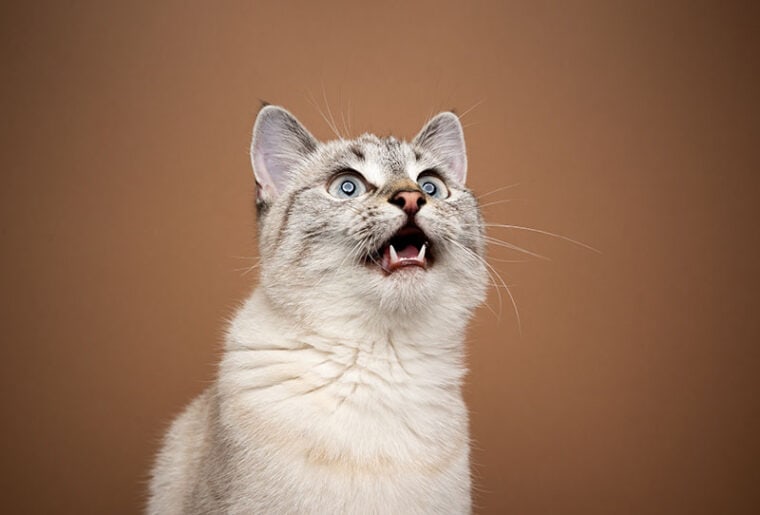

The information is current and up-to-date in accordance with the latest veterinarian research.
It’s a topic that might have many owners blushing or feeling uncomfortable thinking about, but yes, cats do masturbate. Generally, it’s associated with male cats that either haven’t been neutered, or were neutered a bit later in life, and they will pleasure themselves for the same reason humans do—because they like the feeling.
However, occasionally masturbation is a sign of hyper-sexuality, which can result from stress or even a health problem. So, it’s crucial to take your cat to the vet if they masturbate frequently.

Why Do Cats Masturbate?
Sometimes, cats masturbate because they did it once and enjoyed it, so they’ll repeat the behavior. Other times, they masturbate because they’re stressed or bored.
Most of the time, it’ll be evident if your cat is masturbating. Other times, the signs might be subtler.
The signs below indicate your cat is masturbating or is thinking about doing so:
- Drooling
- Dopey or dreamy look in their eyes
- Excessive licking of the genitals
- Excessive kneading
- Humping
- Overgrooming
- Purring
- Rubbing genitals on objects, such as blankets or bedding
Generally, masturbation is associated with hormone-driven behavior, so it’s considered less of a problem with neutered males. Testosterone will drive most of your cat’s sexual behaviors, like masturbating, humping, spraying, and seeking out females. When a cat is neutered, testosterone production ceases, so within about 6 weeks, owners will notice these hormone-driven behaviors tend to disappear.
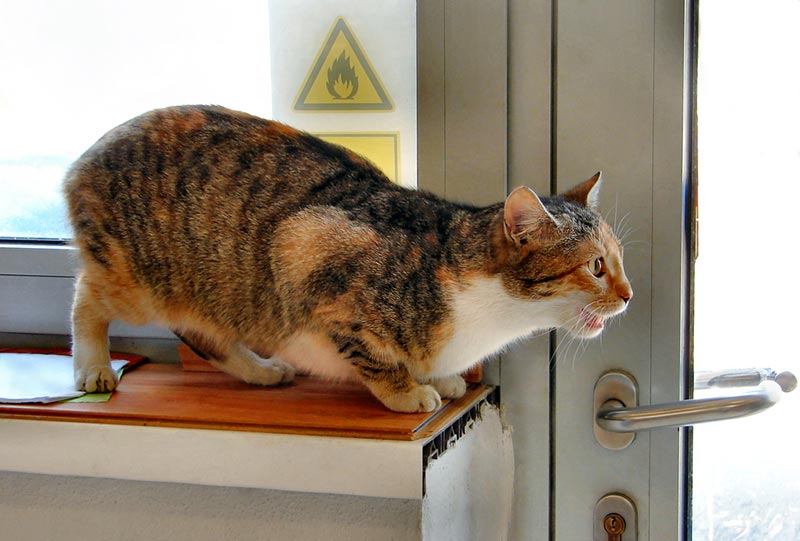
Why Neutered Males Might Still Masturbate
Males that have been neutered might still exhibit sexually driven behaviors. They might still masturbate or roam for females, for example. If your cat was slightly older when they were neutered, it has become a learned behavior that neutering won’t take away.
On the other hand, it could also mean something is wrong, such as your cat suffering from stress or feeling unwell.
When Should You Be Concerned?
Cats often hide their pain when something is wrong, so it will be up to you to determine if your cat’s behavior is a cause for concern. Occasional masturbation isn’t usually a problem, but sexual behavior can become compulsive in cats.
Hyper-sexual behavior is when a cat displays obsessive or excessive sexual behaviors regularly. If that describes your cat, take them to the vet for a full examination.
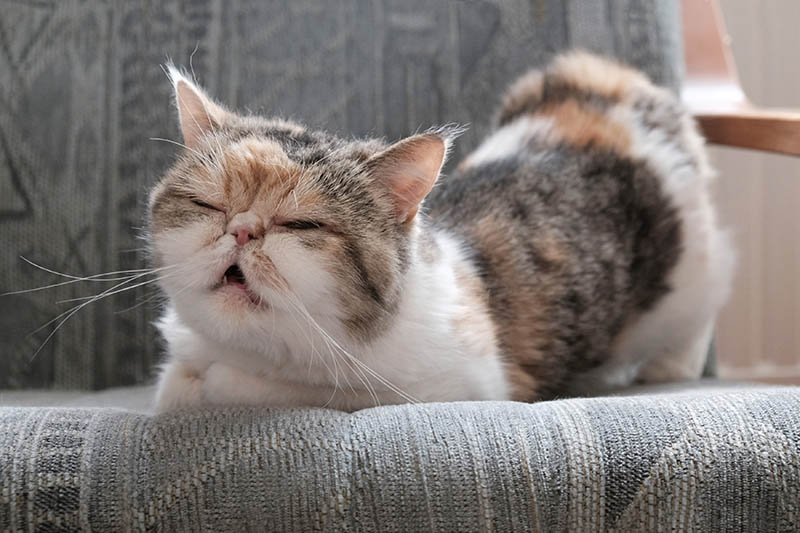
Stress
Cats are much more sensitive than we sometimes give them credit for. They have a reputation for being aloof and cold, but that isn’t true at all. They can react to environmental changes, like a new pet, noisy guests, moving home, or a new baby. When a cat feels anxious and stressed, they’ll find ways to relieve it. This could result in masturbating multiple times a day.
They might also show signs such as:
- Eating or drinking less
- Excessive meowing
- Crouching and looking tense
- Hesitating to use the litter box, sit with you, or use the cat flap
- Hissing or growling
- Less tolerant of people
- Licking their nose or exaggerated swallowing
- More withdrawn or hiding more often
- Overeating
- Scratching furniture
- Overgrooming
If you suspect your cat is feeling stressed, it’s important to identify the source of that stress. If they are feeling upset about a change in your work schedule or a new addition to the family, you could make an effort to spend quality time together as they might miss you, or set up a room for them to escape to, away from the new baby or pet.
The use of pheromone diffusers or calming sprays are a great way to help transition your cat through a stressful time, or provide long term relief to a sensitive feline.
It’s essential to contact your veterinarian if you notice changes in your cat’s behavior, and this can apply to masturbation. If your neutered male cat suddenly starts masturbating frequently, when they never or rarely have before, it is worth getting them checked over by your vet. Any change should be investigated as it might be a sign of something more sinister, and it’s always better to get it checked out.
Health Problems
Cats might lick to pleasure themselves, but they will also do it if there are problems with the reproductive or urinary tracts or if they’re in pain. If you notice any of the following signs, contact your vet:
- Discharge from genitals
- Discolorations of the skin (rust or black colored)
- Increased urination
- Foul odor in urine
- Pimples or red bumps on the skin
- Scooting or rubbing the rectal area on the ground
- Straining to urinate
- Swollen or red anus, vulva, or penis
Hyper-sexuality might also indicate epilepsy or brain tumors. There hasn’t been a lot of research on hyper-sexuality and everything it could indicate, but it’s essential to speak to your vet if you notice any changes in your cat’s behavior.
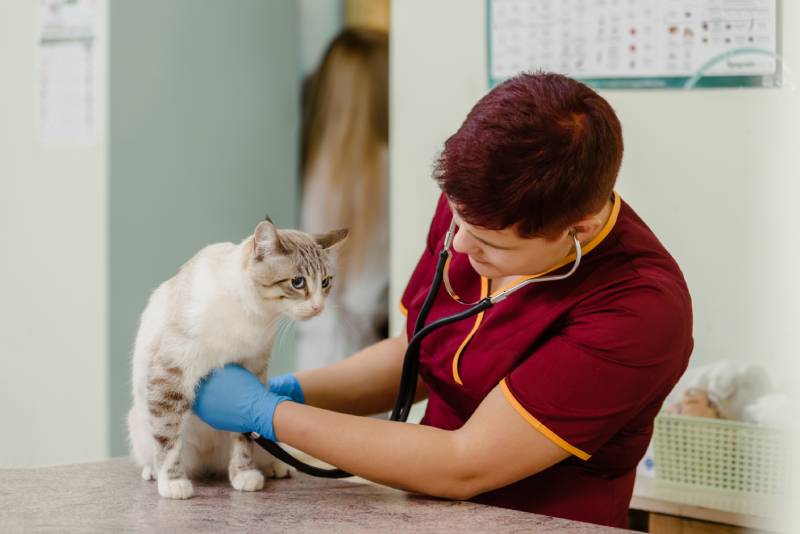

Frequently Asked Questions
Do Female Cats Masturbate?
Just like with male cats, female cats have been known to exhibit dominant behavior by humping, and they have also been known to masturbate, especially if unspayed. These heat behaviors are sometimes associated with being in estrus for the first time, which generally happens when they reach puberty or sexual maturity.
Additionally, some cats feel sexually aroused by catnip, so you might see these sorts of behaviors in cats enjoying its effects.
What Should You Do to Stop Your Cat Masturbating?
If your cat has been given a clean bill of health, your vet might recommend neutering if it hasn’t been done already. Otherwise, it is better for us to adjust to this behavior than to cause stress to your cat by trying to stop it.
Our pets don’t feel embarrassed the way that we do, so, sometimes you might just need to make peace with the fact that your cat enjoys pleasuring themselves occasionally.

Final Thoughts
Cats do masturbate. Although it is generally associated with males, females have also been known to pleasure themselves. In most cases, the behavior is nothing to worry about, and even cats that have been neutered and spayed might still exhibit sexual behaviors because they have become a habit.
If this development is new, and happens more than just occasionally, it’s important to contact your vet as it might be a sign of a health problem. Your cat might also be exhibiting obsessive behavior because they’re anxious or stressed, so you’ll have to locate the source, comfort your cat, and offer them a solution to help soothe their stress.
If your cat is fit and healthy, you may just have to accept that they will, from time to time, enjoy a bit of self pleasure, and that’s nothing to be ashamed of!
Featured Image Credit: Nils Jacobi, Shutterstock
Tags
What do you think?
Related Articles

New Puppy Checklist: Gear You’ll Need for Your New Dog
Getting a new puppy is really exciting, but before you welcome them home, it’s important to prepare your space for them. Since puppies need a

How Big Do Mini Poodles Get? Vet Reviewed Average Weight & Growth Chart – Dogster
The information is current and up-to-date in accordance with the latest veterinarian research. Learn more » When you buy a Miniature Poodle, you might not

Can Police Dogs Smell Nicotine? Vet Verified Facts & Info – Dogster
The information is current and up-to-date in accordance with the latest veterinarian research. Learn more » While cigarette sales have been declining steadily for decades,

How Old Is 5 in Dog Years? Vet-Approved Guide to Each Size of Dog – Dogster
The information is current and up-to-date in accordance with the latest veterinarian research. Learn more » A common method for calculating a dog’s age is

